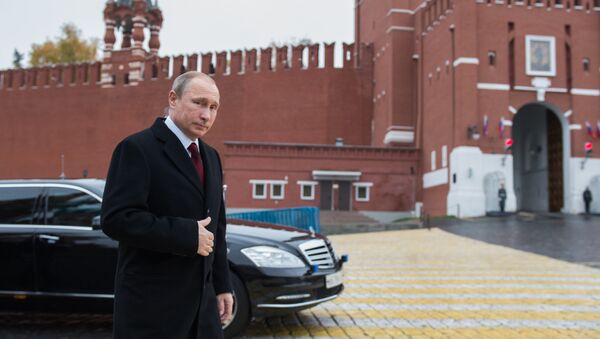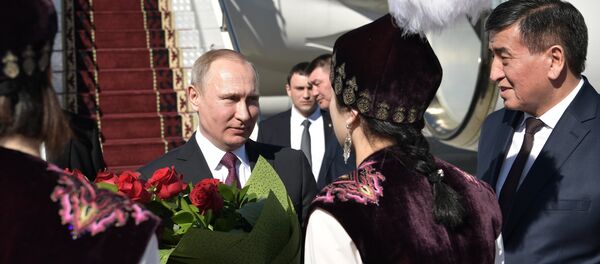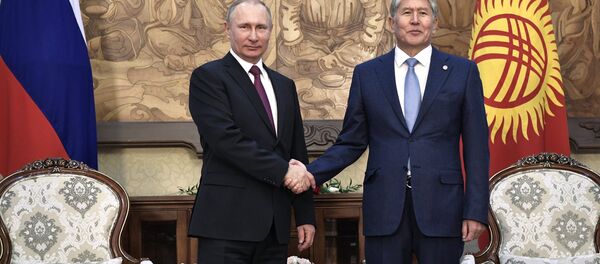Among President Putin's major achievements, they noted the breakdown of the US monopoly to interpret international law at its own discretion.
In addition, they said that the Russian leader is now perceived around the world as a value-oriented politician from the conservative wing.
However they added that the successes in his foreign policy have complicated the implementation of his electoral economic agenda.
The President, they suggested, will use his remaining year in office to work out a coordinated socio-economic program, facilitate the development of the Russian regions and to further rotate high-ranking personnel.
Nikolai Mironov, the Director of the Center for Economic and Political Reform points out the evident geopolitical emphasis of Putin's third presidential term. He also singled out some the key accomplishments as well as some complications of the president's foreign policy.
"The reunification with Crimea, the re-tuning of Russia's foreign policy, attempts to find new partners are among the achievements. Quite complicated relations with the West and the US have forced the president to re-orient his policy towards the eastern partners," he told Sputnik.
Russian political analyst Dmitry Badovsky of the Moscow-based Institute of Socio-Economic and Political Studies Foundation also called the reunification with Crimea a "conceptual and emotional keynote" of the president's third term.
He further explained that the scale and the effect of this move gained geopolitical as well as domestic political strategic importance.
Meanwhile, President of the National Strategy Institute Mikhail Remizov noted in his conversation with Sputnik that during President Putin's third term Russia has become a major league political state, and earned the he right to define the rules of the game in global politics.
The decision over Crimea and the launch of Russia's campaign in Syria have broken the unspoken rules of the game in the world order, which have been in place since the end of the Cold War, and which gave US the monopoly on political interventions, re-drawing borders, the legitimatization and de-legitimatization of regimes around the word and on the interpretation of international law, he said.
"Russia has aspired to being a full-fledged sovereignty, not satisfied by a sovereignty of a second-level," he noted.
He also said that the Russian leader is now perceived in the world as a value-oriented politician from the conservative wing.
Never miss a story again — sign up to our Telegram channel and we'll keep you up to speed!




